This article was co-authored by Trudi Griffin, LPC, MS and by wikiHow staff writer, Amy Bobinger. Trudi Griffin is a Licensed Professional Counselor in Wisconsin specializing in Addictions and Mental Health. She provides therapy to people who struggle with addictions, mental health, and trauma in community health settings and private practice. She received her MS in Clinical Mental Health Counseling from Marquette University in 2011.
There are 19 references cited in this article, which can be found at the bottom of the page.
This article has been viewed 261,121 times.
It can be tough when your partner has PMS—you want to help them, but where do you start? Although mood swings and irritability can be common when someone is dealing with PMS, you can actually help ease those symptoms a lot just by being supportive and showing that you care.[1] X Trustworthy Source PubMed Central Journal archive from the U.S. National Institutes of Health Go to source You can also help make them a little more physically comfortable, even if it's just by helping them get some rest. With a little love and patience, you and your partner can get through this together, and you might become even closer through the process.
Steps
Take over their household chores and responsibilities.
-
Give your partner a chance to rest. Many people who are experiencing PMS will have physical symptoms like abdominal cramps, nausea, fatigue, and constipation.[2] X Trustworthy Source Mayo Clinic Educational website from one of the world's leading hospitals Go to source You can help your partner deal with these symptoms by handling things like the dishes, laundry, yard work, and general tidying. That way, they'll be able to get the relaxation they need without stressing about all the stuff that still needs to be done.[3] X Research source
- Try saying something like, "I want you to rest today, so I'll take care of the laundry, and dinner. Is there anything else that needs to be done that I might not know about?"
- If your partner feels like they carry most of the weight of the chores, they might feel especially irritated about it when they have PMS. However, even if you normally split the housework evenly, do your best to give them a break around the time of their menstrual cycle.[4] X Research source
Offer to cook them meals.
-
Make healthy foods that might ease inflammation. Not only will cooking dinner for your partner be a nice treat, but certain foods might even help decrease some of their PMS symptoms. Choose healthy foods that are rich in nutrients like calcium, vitamin D, iron, protein, and omega-3 fatty acids.< However, avoid food that's high in salt or animal fats, as well as alcohol—all of these can make PMS symptoms worse.ref>https://www.thewomens.org.au/health-information/periods/healthy-periods/exercise-diet-periods</ref>
- Fish like salmon and sardines are great sources of omega-3 fatty acids. However, also include meals with red meat or chicken, which provide iron and protein. Other healthy, PMS-friendly foods include broccoli, bok choy, tofu, low-fat dairy products, brown rice, couscous, nuts, and seeds.
- If you're not much of a cook, plan ahead so you can order take-out, or ask a family friend if they could send a meal over.[5] X Trustworthy Source Mind U.K.-based mental health charity focused on providing advice and resources to anyone facing mental health problems. Go to source
Encourage them to make time for self-care.
-
Let your loved one know they should do something they really enjoy. Everybody's version of self-care is different—your partner might want to take a long bath, go for a peaceful walk, spend time in the garden, or just curl up in front of the TV.[6] X Research source Whatever it is, make sure your partner knows it's totally okay to take some time to do that. Then, do your best to make sure they have the space to make it happen.[7] X Research source
- If you and your partner have kids, take them out for an afternoon so your partner can have some quiet alone time.
Bring them a heating pad if they have cramps.
-
Heat can help ease the pain of menstrual cramps. Although it's different for everyone, your partner's PMS may continue after their menstrual cycle starts—and that might bring on a new set of symptoms, like cramps.[8] X Trustworthy Source Mayo Clinic Educational website from one of the world's leading hospitals Go to source When your partner is already dealing with feeling irritable and achy, menstrual cramps can make everything seem even worse. If they mention having cramps, help your other half get comfortable with some pillows and blankets, then offer to grab a heating pad or hot water bottle.[9] X Trustworthy Source Mayo Clinic Educational website from one of the world's leading hospitals Go to source Not only will they get some physical relief, but by showing that you want to help, you'll make them feel supported and cared for, too.
- You could also offer to bring them an anti-inflammatory medicine like ibuprofen or naproxen.[10] X Trustworthy Source Mayo Clinic Educational website from one of the world's leading hospitals Go to source
Give them a massage.
-
Help them relax with a nice back rub orfoot rub. Stress can make PMS symptoms worse, so offering to give your partner a relaxing massage can actually make them feel physically better. Rub their shoulders, neck, and back if they're feeling tense, or have them lie back on the sofa or bed while you rub their feet if they're feeling achy and tired.[11] X Trustworthy Source Mayo Clinic Educational website from one of the world's leading hospitals Go to source
- If your partner would rather not be touched, ask them if they'd like to do yoga or progressive muscle relaxation to help ease any tension in their muscles.
Offer dark chocolate as a treat.
-
Chocolate might do more than just soothe cravings. In fact, 1 oz (28g) of dark chocolate can help boost feel-good brain chemicals like serotonin and endorphins. That might just make your partner feel a little better when they're struggling with their PMS symptoms, especially if you know they usually crave chocolate around that time.[12] X Research source
- Try bringing home a small bar of high-quality dark chocolate. Steer clear of milk chocolate, though—it's high in fat and sugar, which can make PMS symptoms worse.
- Chocolate does contain small amounts of caffeine, which some experts suggest avoiding during PMS.[13] X Research source However, there's some scientific evidence that caffeine doesn't have much effect on PMS symptoms, so if your partner enjoys it, there's probably nothing to worry about.[14] X Trustworthy Source PubMed Central Journal archive from the U.S. National Institutes of Health Go to source
Keep track of their cycle together.
-
Try to anticipate when their symptoms will start. Make a note in a desk calendar or your phone each time your partner's period starts. Pay attention to when their symptoms are most severe. For some people, their symptoms will start a few days before their menstrual cycle and will peak a few days later. As you become more familiar with the pattern, it will be easier to plan around their PMS symptoms, so you'll know when you need to be home to help out with chores or offer emotional support.[15] X Research source
- You can also use an app to track your partner's cycles. Some even come with a feature to track individual symptoms.
- Although menstrual cycles are often called "monthly" cycles, most aren't exactly 30 days long. Tracking your partner's cycle will make it easier to know when to expect the onset of PMS.
- If your partner doesn't already track their cycle, they might find that they're more mentally equipped to handle their symptoms once they can anticipate them.
Plan stressful events for a different time of the month.
-
Having PMS is stressful enough as it is. If you have anything big coming up—like going on a trip, having a houseguest, or starting a home project—try to push it back so it won't be happening while your partner has PMS.[16] X Trustworthy Source Mind U.K.-based mental health charity focused on providing advice and resources to anyone facing mental health problems. Go to source Ideally, you should try to keep your schedule as normal as possible, and avoid asking your partner to make big decisions while they're dealing with PMS, since stress can make them feel worse.[17] X Research source
- If there's absolutely no way you can reschedule, do everything you can to prepare ahead of time to make it as easy for your partner as possible.[18] X Research source
Check in before you agree to joint social events.
-
Your partner might not feel like seeing other people. They might not physically feel up to it, or they might just not have the emotional space for being around friends for a couple of days. That's totally normal, so try not to schedule plans as a couple during that time, and ask them if they want to reschedule if their menstrual cycle shows up unexpectedly.[19] X Research source
- Be considerate if you plan to go out without your partner, too. For instance, you might ask them if they'd rather you stay in and keep them company. If you do go out, offer to have dinner delivered, or run out and pick up their favorite snack before you leave.
Be patient with your partner.
-
Sometimes, your partner might feel emotionally overwhelmed. This might come in the form of depression, anger, or irritability. They might even take it out on you sometimes. It's completely fine to let them know if they've crossed a line, but if they're just being a little snappy or short-tempered, try to respond in a calm, reassuring way. If you can avoid getting frustrated, it's more likely to just blow over, rather than turning into a full-on argument.[20] X Research source
- If your partner gets upset, acknowledge that their emotions are real—even if you don't totally understand where they're coming from in that moment.[21] X Research source
Ask your partner about their PMS symptoms.
-
Every person's experience is unique. Their symptoms might even be a little different from cycle to cycle—they might have really bad cramps one month, then struggle emotionally the next. Ask them what they're going through, and what you can do to help them feel better. By talking openly about it, you'll have a better idea of what's going on, but you'll also be showing your partner how much you care.[22] X Trustworthy Source Mind U.K.-based mental health charity focused on providing advice and resources to anyone facing mental health problems. Go to source
- You might also try reading about other people's PMS symptoms online or in blogs so you can have a better idea of what your partner might be going through.[23] X Trustworthy Source Mind U.K.-based mental health charity focused on providing advice and resources to anyone facing mental health problems. Go to source
- If your partner feels like you're supportive and understanding, it can make it easier for them to cope with the symptoms they're experiencing.[24] X Research source
Do not make PMS jokes or comments.
-
Your partner might feel like you're making light of their discomfort. It's disrespectful and demeaning to make jokes about your partner being difficult during "that time of the month," or to ask if they're on their period because they're upset with you. And since your partner might already be feeling irritable, it could potentially lead to a big argument.[25] X Research source
- It's best to only talk about your partner's menstrual cycle in a supportive, empathetic way.
- If your partner is the type to make jokes about their own PMS, it's fine to laugh along with them, but it's a good idea to follow up with something positive. For instance, if they say, "There I go crying at a pet food commercial. I guess I know what time of the month it is," you might say, "Yeah, but you make the cutest face every time you see that puppy!"
Be in tune with your partner's sexual needs.
-
Let them take the lead on any bedroom activities. Although every person's body is different, many people actually have a higher-than-normal libido during PMS, so your partner might be really interested in being intimate during that time. On the other hand, some people experience zero interest in sex when they have PMS—and for some people, it might be different every time! Because each person's experience varies so widely, it's important to let your partner decide what they're comfortable with.[26] X Research source
- If you're not comfortable having sex during your partner's menstrual cycle and they have a really high sex drive during that time, try talking to them about different activities that you would enjoy so both of your needs are being met.
Encourage your partner to talk to a doctor or therapist.
-
If their symptoms are severe, their doctor might prescribe contraceptives. For instance, they might prescribe birth control pills or a contraceptive implant, injection, or IUD. These can sometimes help decrease PMS symptoms as long as you and your partner aren't actively trying to get pregnant. If your partner really struggles with their mood, their doctor might also prescribe antidepressants, which your partner might need to take every day or just before their period begins.[27] X Trustworthy Source Mayo Clinic Educational website from one of the world's leading hospitals Go to source
- If your partner can't or doesn't want to use contraceptives or antidepressants, their doctor might be able to suggest lifestyle changes or alternative treatments that might help them manage their PMS symptoms.
- If your partner's emotional symptoms are affecting them severely, they might benefit from talking to a licensed therapist who can teach them skills for coping with anxiety, irritability, and depression. You might even find that couple's therapy helps you deal with your partner's PMS together![28] X Trustworthy Source PLOS ONE Online peer-reviewed, open access scientific research journal Go to source
Take care of yourself, too.
-
Caring for someone else can take its toll. You can't take good care of your partner if you aren't feeling your best, so don't take on too much at once. If you start to feel burned out or overwhelmed, reach out and ask someone to help you.[29] X Trustworthy Source Mind U.K.-based mental health charity focused on providing advice and resources to anyone facing mental health problems. Go to source
- For instance, if taking care of all the housework is too much, you might arrange to have a cleaner come in once a month.
You Might Also Like
 How to Deal with a Guy's Mood Swings
How to Deal with a Guy's Mood Swings
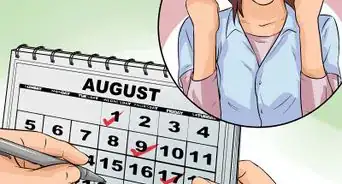


 How to Call in Sick Because of Your Period
How to Call in Sick Because of Your Period









References
- ↑ https://www.ncbi.nlm.nih.gov/pmc/articles/PMC4877203/
- ↑ https://www.mayoclinic.org/diseases-conditions/premenstrual-syndrome/symptoms-causes/syc-20376780
- ↑ https://www.researchgate.net/publication/235403536_PMS_as_a_process_of_negotiation_Women%27s_experience_and_management_of_premenstrual_distress
- ↑ https://www.researchgate.net/publication/224053890_Challenging_the_Positioning_of_Premenstrual_Change_as_PMS_The_Impact_of_a_Psychological_Intervention_on_Women%27s_Self-Policing
- ↑ https://www.mind.org.uk/information-support/types-of-mental-health-problems/premenstrual-dysphoric-disorder-pmdd/for-friends-family/
- ↑ https://www.researchgate.net/publication/235403536_PMS_as_a_process_of_negotiation_Women%27s_experience_and_management_of_premenstrual_distress
- ↑ https://researchdirect.westernsydney.edu.au/islandora/object/uws:16837/datastream/PDF/view
- ↑ https://www.mayoclinic.org/diseases-conditions/menstrual-cramps/diagnosis-treatment/drc-20374944
- ↑ https://www.mayoclinic.org/diseases-conditions/menstrual-cramps/diagnosis-treatment/drc-20374944
- ↑ https://www.mayoclinic.org/diseases-conditions/menstrual-cramps/diagnosis-treatment/drc-20374944
- ↑ https://www.mayoclinic.org/diseases-conditions/menstrual-cramps/diagnosis-treatment/drc-20374944
- ↑ https://psychcentral.com/blog/chocolate-and-mood-disorders#1
- ↑ https://academic.oup.com/beheco/article/29/1/51/4496683
- ↑ https://www.ncbi.nlm.nih.gov/pmc/articles/PMC4962155/#:~:text=Conclusions%3A%20Our%20findings%20suggest%20that,prevent%20the%20development%20of%20PMS.
- ↑ https://www.researchgate.net/publication/235403536_PMS_as_a_process_of_negotiation_Women%27s_experience_and_management_of_premenstrual_distress
- ↑ https://www.mind.org.uk/information-support/types-of-mental-health-problems/premenstrual-dysphoric-disorder-pmdd/for-friends-family/
- ↑ https://www.nwpc.com/suffer-from-pmdd-your-partner-can-lend-support/
- ↑ https://www.researchgate.net/publication/235403536_PMS_as_a_process_of_negotiation_Women%27s_experience_and_management_of_premenstrual_distress
- ↑ https://www.nwpc.com/suffer-from-pmdd-your-partner-can-lend-support/
- ↑ https://www.nwpc.com/suffer-from-pmdd-your-partner-can-lend-support/
- ↑ https://researchdirect.westernsydney.edu.au/islandora/object/uws:16837/datastream/PDF/view
- ↑ https://www.mind.org.uk/information-support/types-of-mental-health-problems/premenstrual-dysphoric-disorder-pmdd/for-friends-family/
- ↑ https://www.mind.org.uk/information-support/types-of-mental-health-problems/premenstrual-dysphoric-disorder-pmdd/for-friends-family/
- ↑ https://researchdirect.westernsydney.edu.au/islandora/object/uws:16837/datastream/PDF/view
- ↑ https://www.nwpc.com/suffer-from-pmdd-your-partner-can-lend-support/
- ↑ https://researchdirect.westernsydney.edu.au/islandora/object/uws:16837/datastream/PDF/view
- ↑ https://www.mayoclinic.org/diseases-conditions/premenstrual-syndrome/diagnosis-treatment/drc-20376787
- ↑ https://journals.plos.org/plosone/article?id=10.1371/journal.pone.0175068
- ↑ https://www.mind.org.uk/information-support/types-of-mental-health-problems/premenstrual-dysphoric-disorder-pmdd/for-friends-family/



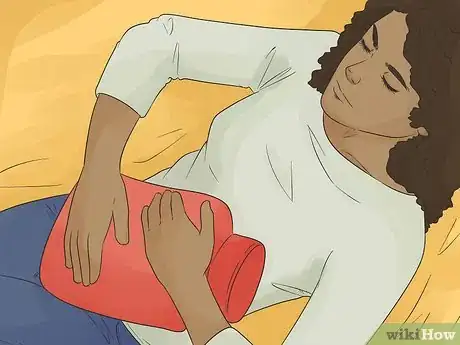

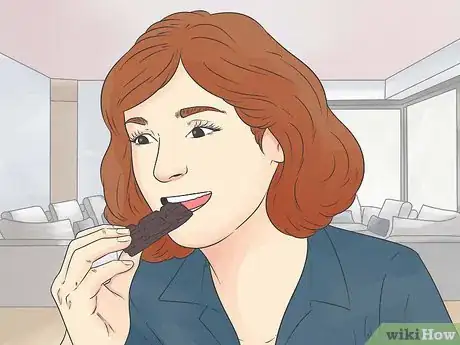

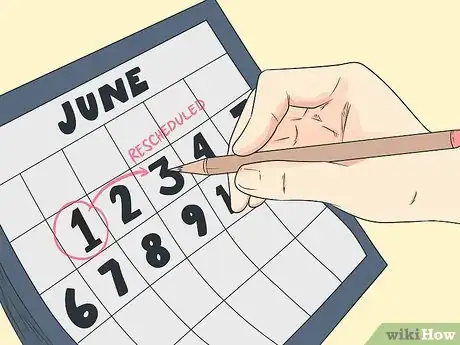





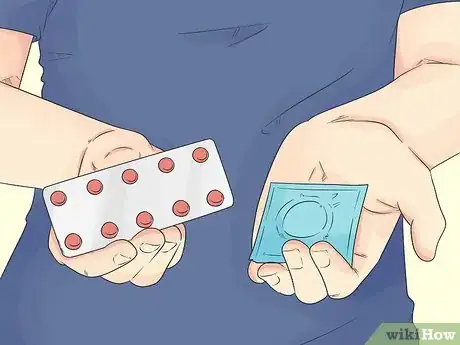

















































Medical Disclaimer
The content of this article is not intended to be a substitute for professional medical advice, examination, diagnosis, or treatment. You should always contact your doctor or other qualified healthcare professional before starting, changing, or stopping any kind of health treatment.
Read More...